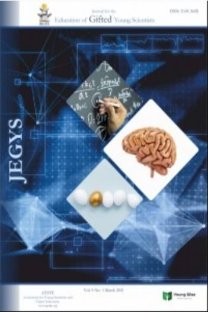Proposal of Character and Moral Education for Gifted Young Scientists in Indonesia
Character education is aimed at achieving the five goals. Firstly, it is to develop affective potency of the students in their context as human and citizen inheriting their nation character values. Secondly, it is to develop the noble habit and behavior which are in line with the universal values and the nation religious tradition. Thirdly, it is to strengthen the students’ leadership and their sense of responsibility as to the next generation of the nation. Fourthly, it is to develop the students’ competency so that they could be autonomous, creative, and possess nationality insight. Finally, it is to develop the school as a good learning environment so that it could support the growth of honesty, creativity, and friendship with the pride of nationality and dignity. The morality education, in turn, lead to a holistic personality possessing a high moral standard in speech, action, attitude, thought, feeling, work, and output which are in line with the religious values, norms, and the noble moral of the nation.
___
- Al-Attas, M. N. (2004). The Concept of Education in Islam : A Framework for an Islamic Philoshophy of Education. Bandung: Mizan.Al-Syalhub,
- F. bin A. A. (2005). Quantum Teaching. Jakarta: Zikrul Haki.Ballantine, J. H. (1983). The Sociology of Education: A Systematic Analysis. New Jersey: Prentice-Hall.Biehler,
- F. R., & Snowman, J. (2007). Psychology Applied to Teaching. Boston: Houghton Mifflin Company.
- Bohlin, K. E. (2005). Teaching Character Education through Literature: Awakening the moral imagination in secondary classrooms. London and New York: RoutledgeFalmer. https://doi.org/10.1017/CBO9781107415324.004
- Borich, G. (1992). Effective Teaching Methods. New York: Merril.
- Cartledge, G., & Milburn, J. F. (2000). Teaching Social Skill to Children: Innovative Approach. New York: Pergamon Press.
- Combs, A. W. (2000). The Professional Education of Teachers: a Humanistic Aproach to Teachers Preparation. Boston: Allyn Bacoon.
- Duska, & Whelan. (2002). Moral Develompent. Dubuque: WM. C. Brown.
- Jacson, E. H. (1943). Character education in the schools. California: The Faculty of the School of Education The University of Southern California.
- Noddings, N. (2000). Philosophy of Education. USA: Westview Press.
- Noddings, N. (2002). Educating Moral People: A Caring Alternative to Character Education. (N. Noddings, Ed.). New York and London: Teachers College Press. https://doi.org/10.1177/147787850500300307
- Stephen, E. N., Kratochwill, T. R., Littelefield, J., & Travers, J. F. (1996). Educational Psychology: Effective Teaching, Effective Learning. Madison: A Times Miror Company.
- Başlangıç: 2013
- Yayıncı: Genç Bilge Yayıncılık
